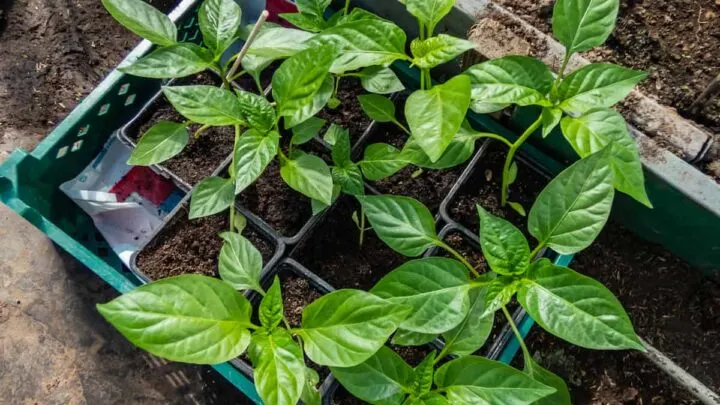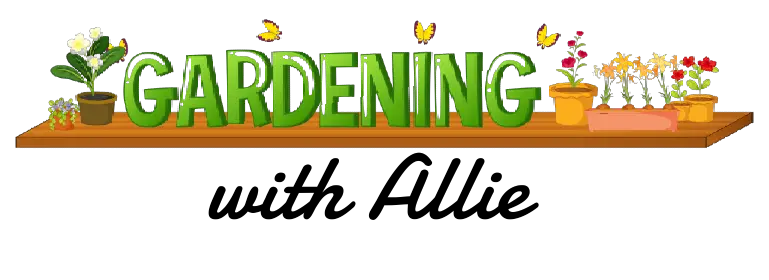Peppers, from mild and sweet bell peppers to fiery hot habanero, ghost peppers, and scotch bonnets, are a favorite for gardeners and foodies alike. After all, with a wide range of flavors, amounts of capsaicin, and a rainbow of possible colors, chili peppers are one of the most versatile fruits or vegetables.
However, peppers are notorious for being picky growers, tropical and subtropical plants that struggle in the cold, and offer too wide a range of flavor and heat levels.
Many gardeners shy away from growing peppers because of that reputation or worry that they can’t grow chili peppers outside the recommended growing zones.
Peppers are recommended for zone 5 gardens, but will they grow there?
In general, pepper plants do best in USDA hardiness zones 8-11, and they can be challenging to grow below zones 6-7. However, it is possible to grow peppers in zone 5 with the proper preparation and tools, as long as you choose the right varieties of peppers.
Some peppers are more cold-tolerant than others, and other varieties have been bred explicitly for better hardiness ratings. In zone 5, there will be challenges to growing even the most cold-tolerant peppers, but it is possible if you’re determined and willing to put in the work.
However, it’s also worth considering growing your peppers inside if you live in zone 5. Growing inside might have some challenges, but it will likely be more manageable than growing your peppers outdoors.

What Temperature Is Too Cold For Peppers?
Peppers grow best between 70-85 degrees Fahrenheit, but that’s just the optimal range. In hotter or colder temps, peppers might not be growing as quickly as they could, but that doesn’t mean they’ll stop growing entirely.
You should aim for at least 60 degrees for your peppers. They’ll still grow and fruit reasonably quickly with an average growing temperature of 60 degrees. They’ll need a little longer to reach the full height or produce fruit, but you should get at least one harvest at that average temperature.
Will Peppers Survive A Frost?
No. Most peppers are not frost tolerant, and even a relatively ‘light’ frost can kill them. Larger, better-established pepper plants may survive a light frost, but they’ll be damaged and need time to repair that damage. Unfortunately, this results in lost time that could have been spent growing peppers.
If you’re getting ready for a frost with outdoor peppers, you can cover them to help lock in the heat and prevent damage. A thick tarp or specialized plant cover is usually the best option. Just make sure the tarp isn’t too heavy for the plants underneath (or provide supports), and use rocks or other weights to make sure the plants stay covered.
Will Peppers Germinate At 60 Degrees?
Yes, peppers will germinate at 60 degrees, but they won’t set fruit as heavily as they would at higher temperatures.
Pepper germination stops anywhere below 55 degrees. Growth stops below 40 degrees, and your plants are in danger of damage or death when temperatures dip to 32 degrees or below.
How Do You Overwinter Pepper Plants In Zone 5?
The best way to overwinter pepper plants in zone 5 is to take them inside or move them into a heated greenhouse until temperatures go back up.
Container planted plants can just be moved inside, given light and water, and they’ll continue growing as expected. You can control fertilizer, water amounts, and the amount of light to either encourage growth or fruiting or to discourage them and allow the plant to go into a more dormant phase.
For pepper plants that have been planted in the ground, it’s a little more complicated. You’ll want to use a shovel and trowel to dig in and loosen the soil around the pepper plant’s roots, trim the plant back (usually down to the first branching of the pepper’s stem), and then transfer the plant into its new container.
You do not need to trim the pepper again in the Spring. It can either continue as a container plant or be transplanted directly into a prepared garden bed.
How Many Years Can You Overwinter Peppers?
Growing plants indoors or taking them inside for the winter can mean that even your perennial vegetables and fruits can sometimes grow for years. However, that doesn’t mean that your favorite habanero is functionally immortal – there are still limits on how long a plant can live, produce fruit, and resist disease.
The most experienced gardeners report that you can overwinter peppers for as many as ten years or more, but you might notice that your harvests start to decrease sooner than that.
The primary consideration for how long your peppers last when you overwinter them depends on how closely their growing conditions match their needs. Be prepared; if your peppers start to produce less fruit, you likely need to change their growing conditions, or the plant will stop producing fruit entirely.

When Should I Start Peppers In Zone 5?
Pepper plants need to start from seed 4-6 weeks before you anticipate planting them in the ground – or 80-90 days before you want your first harvest if you’re planning to grow them inside.
In zone 5, it’s usually safe to plant pepper plants outside starting in mid-May. By May 12-16, you should have consistently warm temperatures, warming soil, and low frost risk in most locations.
That means you should start your peppers in late March or early April.
However, if you live somewhere prone to late frosts, especially if you live at zone 5 in altitude, you may want to plan on planting in late May or even early June. If you need to delay outdoor planting, you may also want to plan on overwintering your pepper inside since they may not have enough time to set fruit outside and will need to grow inside for a few weeks to produce a harvest.
Can You Grow Peppers Indoors Year-Round?
Yes! Growing peppers indoors can reward persistent gardeners with year-round harvests and beautiful plants. Peppers planted outdoors are typically a perennial; they don’t do well in cold months, but they can re-seed readily in good conditions.
Indoors, assuming they’re given good growing conditions year-round, pepper plants don’t die off in the winter. They usually don’t even stop producing peppers.
However, it is crucial to provide good growing conditions, including plenty of water and fertilizer, to set fruit. An indoor mature pepper that isn’t fruiting is likely a pepper that needs some TLC because it’s too dry, undernourished, or dealing with pests and disease.
If an indoor pepper plant starts showing signs of pests or disease, you should immediately isolate it from your other pepper plants and treat all of your plants for pests or disease to prevent spreading.

Hi there, my name is Allie and welcome to my blog; GareningWithAllie!
Much of what you see written here is just our personal experiences with gardening. Along with the content I write here, there is also a unique collection of gardening topics covered by some of our close friends. I hope you find everything you read here to be helpful, informative, and something that can make your gardening journey the most lovely experience ever! With that said, Happy Gardening!
